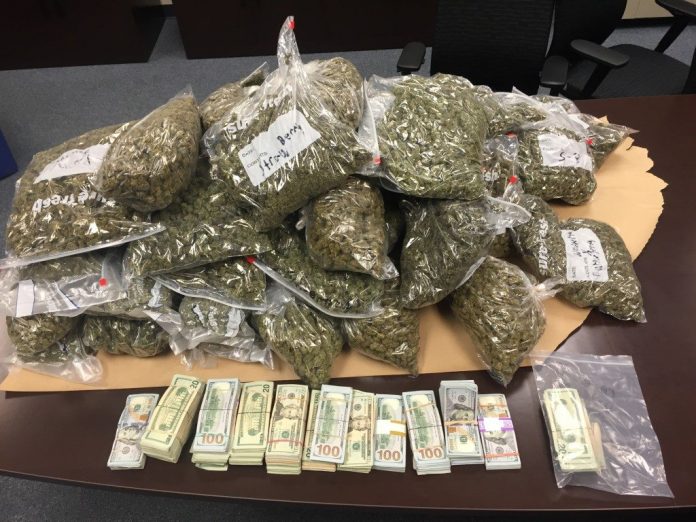This article is written by Gitika Jain, from Amity University, Kolkata. This is an exhaustive article which deals with decriminalizing narcotics.
Table of Contents
Introduction
To fight against criminality, the penal law is neither the best nor the unique instrument. Therefore, to limit the application of the penal system the movement which was initiated by the school of new social defence was the beginning point and it expanded its way from 1970 to 1980 which has its effect even today. There were several reasons for the creation and development of that movement:
- The penal crimes in society were multiplying at a high rate, particularly in the economic and social field.
- There was a lack of implementation of the main part of penal codes.
- Another most important reason for the movement was the faith in securing defence of the society through faster methods apart from the methods of the penal law.
- The social and political environment did not welcome discipline seeking and complicated ideas.
These reasons had their consequences. On one hand, the movement gave rise to the idea of restricting the control of radicalism in criminalization and on the other hand, many union foundations trust and international society of social difference came into existence and introduced news of abolitionism and alternative measures for a penalty.
History of decriminalization
The change of social consensus on what are the do’s or don’ts, what’s right or wrong, and what is public or private, were more or less similar to the specific provisions of criminal law. Because of many changes in society, the behaviours and standards of people were also changing and things that were once regarded as a crime were not the subject of penal enforcement guarantee anymore. To accelerate the decriminalization process, the proponents who were willing to reduce crimes considered this activity to be equal to individual freedom.
Decriminalisation was regarded as a negative process by the report of the Council of Europe and that report reminded the action of decriminalization to be negative. The Canadian Council of Correction of Law also stated about decriminalization in a document called the basis of future criminal Cannon of Canada 1976.
There was another document under the title of studies on prison penalty in 1975 by this Commission where the penalty of prison from an economic point of view along with justice and humanity point of you was provided because the economic price of individuals freedom is not merely limited to the maintenance of prison but also the economic principle. Despite two different viewpoints from two different movements one from Gramatica whose intention was to abolish and omit the concept of responsibility, offence, and penalty fully from the society, and the other from Marck Ansel who was determined to frame proper laws of the Penal Code. The above decriminalization movement which was an issue in North America and Europe was the main point of discussion and they announced 3rd July to be the world day of decriminalization.
Now we can look at the subject matter of decriminalisation of drugs which is one of the most important and debatable topics of decriminalisation in the system of justice. Though there were differences in the values and culture of western and eastern society, the discussion on decriminalisation was prevailing in both of them and was also common at the international level because addiction to drugs was also concerned internationally. So there is no doubt that the biggest dilemmas of global society were the subject of drugs and were considered to be an “international abnormal phenomenon.”
There are innumerable penal files that are allocated only to the crime of drugs whether directly or indirectly and the majority of them include offenders of drugs. Due to this, the major portion of the work of the judiciary, police, and security in different countries is related to identifying and fighting against the crimes that are related to drugs.
This subject is outstanding and important because of the statistics of the number of addicts and types of social, economic, security, political, cultural, and judicial challenges that are the result of drug production, misuse, smuggling, buying, and selling it globally. Huge efforts have been made to the decriminalization of crimes that involve drugs in western society. The viewers of western writers provide a full proof report of discussion and research on the subject matter of decriminalization of drug crimes and alternative solutions related to it. The writers have even motivated the amended doctrine by putting forward the problem of decriminalisation. Thus, this topic has become an important point of discussion and research and is increasing tremendously.
Decriminalization of crimes involving drugs
For this topic to be examined carefully, it is necessary to have a thorough knowledge of the concept of drugs and the relationship between several aspects of it such as crime, addiction, historical background, the global industry of drugs, smuggling, international activities to control drug smuggling, and its impact on criminality. The judiciary on one side directs and supports the view to limit the system of penal justice and on the other side, coordinates the type of mechanism used in place of the penal system to restore justice.
Classification of drugs, their concept, and types
The concept of drugs can be understood as any material which is harmful because of consumption and is misused in society. Consumption of drugs creates a state of thoughtlessness in the minds of the user. Drugs are also termed as narcotic drugs by the World Health Organisation, the drug abuse which has been considered as miss consumption for illegal use of drugs, and the consumption of the same results in a criminal act. Any material except food that has its after-effects on the organic performance of living things due to its chemical nature is known as drugs.
Classification
- Regular drugs such as hookah, tea, coffee, or pharmacological tranquilizers.
- Intoxicated drugs such as LSD, Peslosiyeen, etc.
- Killing drugs such as heroin, morphine, etc.
Types of drugs
- Cocaine- This is made from the leaves of coca that are generally cultivated in South American countries like Peru, Colombia, and Bolivia. The leaves of coca consumed by the natives of those countries in order to remove fatigue without being the victim of any disease. The leaves help them to live without having food for a long time and climb mountains for many days. There were medicinal properties attached to Khoka that was discovered by Sigmund Freud in 1855. Consumption of cocaine helps the users to provide relaxation for 5 to 6 hours. Once the feeling was diminished it had its consequences like headache, dizziness, and restlessness so much so that it reached up to the level of madness. Cocaine is also consumed by most of the artists to bring an artistic performance out on the stage with a feeling of happiness and joy after its consumption.
- Hashish- The destructive impact on the brain of the person consuming this is also not less than the previous drug. The person who consumes it gradually goes into a state of relaxation with the feeling of self-confidence, peace, and flying somewhere freely. This has a bad impact on the common sense, ethical judgement, and time management of the person. It reduces the mental and movement capacity of them. Influenced by this drug, an addicted person feels an extraordinary force and considers oneself to be stronger than what they are and commits many incidents of crime on himself or herself because of the lack of pain they feel during the consumption of this. They tend to react madly to some situations.
- Morphine- This drug was made in 1805 by Sir Turner of Germany. This is consumed to overcome hard pains and it takes the patient to an unconscious stage and thus is often used in surgical operations to remove post-surgery pains. Soon after 15 to 30 minutes of its consumption, the effect of narcotizing drugs over the nervous system of the patient decreases. It may also lead to bad impacts on the blood circulation digestive system and heartbeat of the person. It also results in reducing blood pressure and the contraction of muscles.
- Heroine- The word ‘heroine’ has been derived from the word Hiroish which means strong factor which is again taken from the word Heroic which means hero. This narcotic is 6 to 7 times stronger than morphine. Earlier this drug was not believed to be addictive but when the addiction power of heroin was proved to be greater than morphine it was prohibited in many countries including America. So addictive is the consumption of this drug that the addicted person is forced to get his or her desire fulfilled by interacting with shrewd persons.
Relationship between crime and drugs
There are three kinds of crime in which the relationship between drugs and crime reflected:
- Crimes related to drugs such as building misusing or selling of narcotic drugs that are under the control of the government.
- Two uses of the drug involved in crime in order to earn money or buy further drugs for the drug addicts.
- Criminal activity in the industries organised for smuggling of drugs such as political corruption, money laundering, etc.
Whenever the subject of a drug gets mixed with any other crime it results in criminal activity and is criminally prosecuted.
Impact of addiction on criminality
The World Health Organisation in 1964 concluded that addiction is not a scientific term and introduced a new term called pharmaceutical dependence. The complex and social phenomenon which is based on the two elements of behavioural and physical dependencies is called an addiction. Thus, according to UN experts addiction is the subject of sociology and the result of constant consumption of artificial or natural drugs. Addiction is involved with two forms of criminality directly or indirectly:
- The direct impact that addiction has on criminal activity is the influence the person has by constantly consuming drugs and indulging in some of the other criminal activities to fulfil his or her desire.
- The indirect impact which arises and results in crime is the buying and selling of drugs and other criminal behaviour.
Benefits of decriminalization
- Reduce the number of persons arrested.
- Reduction in the intake of drug treatment.
- Reduce criminal justice cost.
- Reducing the number of people incarcerated.
- Protection of people from a wide range of criminal activities.
- Protection of people from diseases.
- Improvement of relations between law enforcement and society.
- Minimization in the social exclusion of people who use drugs.
- Diminishing rate of racial disparities.
Reason to decriminalize
The most effective and important argument from the side of the legislation to legalize the system of drugs is that this would result in the elimination of illegal black marketing associated with drug trading. Additionally, this would also help in moving the problem away from the criminal justice system and the police which would further help in concentrating on more important issues like health.
The revenue which the government would receive from taxing illegal drugs can be used for various other good purposes. Among all, one of the most important and strongest arguments against legislation is that it would all result in an increase in drug usage. Even though there exists an economic burden in society, legal drugs such as alcohol and tobacco are widely consumed. So wouldn’t legalizing the system of drugs result in allowing the criminal activities to raise more in society. Moreover, consumption of drugs is against public morality and is antisocial therefore by legalisation or decriminalization of drugs the judiciary is sending a wrong message to the public at large. Like every other thing, the debate of decriminalizing drugs has also two sides of argument attached to it.
Conclusion
To conclude, it can be stated that just the use of the penal justice system will result in reducing the efficiency of the courts by heavily burdening them with cases. Such a burden will affect the quality of judgement and would result in injustice. Alternative mechanisms to penal justice must be laid emphasis upon. People should be made aware of the fact that decriminalization does not mean absolutely removing punishments for crimes but it means including two stages within itself which would help in reducing the burden of the court and the cost of the society involved in costly penal justice systems. The very purpose of decriminalising drugs in the criminal policies of the west was to make the people believe that for the consumption of drugs no one should be sent to prison but to rehabilitation centres.
LawSikho has created a telegram group for exchanging legal knowledge, referrals and various opportunities. You can click on this link and join:
 Serato DJ Crack 2025Serato DJ PRO Crack
Serato DJ Crack 2025Serato DJ PRO Crack











 Allow notifications
Allow notifications


